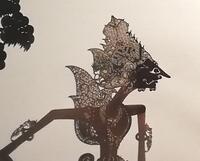Research Experience
-
2019.04-Now
Graduate School of Asia-Pacific Studies, Waseda University Professor
-
2017.04-2019.03
Waseda University
-
2010.04-2017.03
Iwate Prefectural University Faculty of Policy Studies
-
2007.04-2010.03
Iwate Prefectural University Faculty of Policy Studies


Click to view the Scopus page. The data was downloaded from Scopus API in February 13, 2026, via http://api.elsevier.com and http://www.scopus.com .